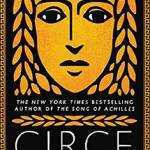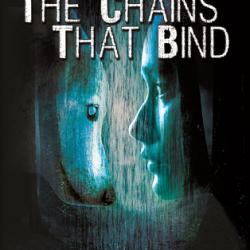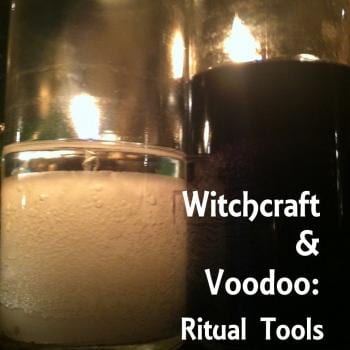
D.J. Conway passed away last week, I was saddened to see an announcement from Llewellyn Worldwide, retweeted in my Twitter feed. I can’t say that I really knew her; we never met in person. But I can say I was acquainted. A few years back, when I was running the Pagan Pathfinders Podcast, I connected with a lot of Pagan writers on Facebook, and I kept interacting with her on and off over the years in different ways online.
I enjoyed many of her books. Celtic Magic was one of my early introductions to Wicca, which I read about the same time I read Scott Cunningham. I still keep two chalices – one for water, the other for wine – on my altar. D.J.’s book Moon Magick gave me a wealth of new ways to interact with lunar energy. I was especially fond of her trancework; I practiced the course in Oak, Ash and Thorn, which was significant in deepening my relationship with the Goddess, and I referenced her book Flying Without a Broom in The Witch’s Eight Paths of Power. Her books on dragon magick were central to the spirituality of a friend of mine I lost a few years ago. My friend was by no means alone, as the comments section on the Llewellyn article I linked demonstrates.
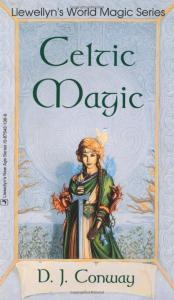 And all over the internet today, people are singing D.J. Conway’s praises. They’re talking about the impact of her books, about how her work had personal meaning for so many of us, about how she’ll be missed.
And all over the internet today, people are singing D.J. Conway’s praises. They’re talking about the impact of her books, about how her work had personal meaning for so many of us, about how she’ll be missed.
Which strikes me as odd, because all I remember seeing on the internet until the day she died (with the exception of writing from our own Jason Mankey) was vitriol.
It started back when Yahoogroups were the way that Pagans stayed in touch. The Celtic Reconstructionist movement was gaining momentum, and Hutton’s Triumph of the Moon had just come out. Traditionally initiated Wiccans (which I was not at the time) were circling the defensive wagons. The beliefs they’d always followed — the myth of Ancient Witchcraft passed down from pre-historic times — were attacked by scholars and the Reconstructionists alike. This, to be fair, was all in the midst of the Satanic Panic, which became systematic oppression of Pagans in North America. Pagans were, somewhat justifiably given the pressures, very concerned with what was “legitimate” Paganism and what was not.
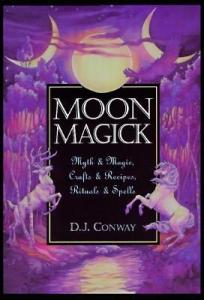 Enter D.J. Conway’s simple, easy-for-anyone to follow books, some of many published then, as the notoriety fueled interest in the Craft. Like many such books, they had historical inaccuracies, and that’s a worthy critique. But so did Cunningham’s, and Buckland’s, and pretty much every book written by every Pagan writer published then. Maybe because she chose to claim her stuff was Celtic, and because the Celtic revival that brought us Riverdance, How the Irish Saved Civilization, and Loreena McKennitt was in full swing, there was an exceptional amount of sneering directed at her. Silver Ravenwolf was the only other Pagan writer I can think of that was so smeared, though in her case, I imagine it was because she said she was a Wiccan initiate who was not writing about initiatory Wicca.
Enter D.J. Conway’s simple, easy-for-anyone to follow books, some of many published then, as the notoriety fueled interest in the Craft. Like many such books, they had historical inaccuracies, and that’s a worthy critique. But so did Cunningham’s, and Buckland’s, and pretty much every book written by every Pagan writer published then. Maybe because she chose to claim her stuff was Celtic, and because the Celtic revival that brought us Riverdance, How the Irish Saved Civilization, and Loreena McKennitt was in full swing, there was an exceptional amount of sneering directed at her. Silver Ravenwolf was the only other Pagan writer I can think of that was so smeared, though in her case, I imagine it was because she said she was a Wiccan initiate who was not writing about initiatory Wicca.
This continued right up until even the past few months, moving seamlessly from Yahoogroups to Facebook when the community did. I find this disingenuous. Why she was singled out? I can’t think of a single book, at the time of her greatest popularity, that was grounded in historical accuracy. Not from Budapest to Starhawk to the Farrars, and you can’t even say that today without starting a heated argument.
But it was more than that. The comments were less about her work, and more about her personally. They were snarky, arrogant, and downright mean. She was called everything from stupid to an outright liar. And now, all of a sudden, everyone has tributes.
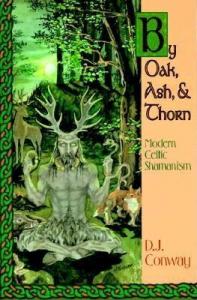 Again, Jason has always spoken of her positively, even while legitimately criticizing her work. That’s totally fair. What isn’t fair is the pure nastiness that I saw out there in the community. It was a good study in the development of troll culture, and of hating someone just for the sake of hating them, in the same way that people do about the band Coldplay (which I like; fight me.)
Again, Jason has always spoken of her positively, even while legitimately criticizing her work. That’s totally fair. What isn’t fair is the pure nastiness that I saw out there in the community. It was a good study in the development of troll culture, and of hating someone just for the sake of hating them, in the same way that people do about the band Coldplay (which I like; fight me.)
What I know is that D.J., from my limited interactions with her, was a nice person. She was kind, soft-spoken, and preferred to keep a low profile. She liked to help people. She was always the first on-board with a good cause and a helping hand.
But that didn’t matter to the trolls, who really had nothing against her or her work, but in fact, just wanted to feel superior to someone because it made them feel better about themselves.
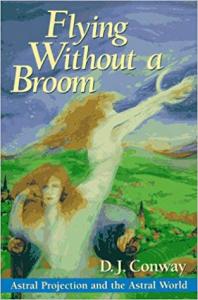 Well, I remember you, those who said personally nasty things. I haven’t forgotten, because I take note of that kind of thing so I know who to be wary of. And you won’t convince me to rewrite history and doubt my memory, because many of my beliefs on who to avoid were formed by comments such as these.
Well, I remember you, those who said personally nasty things. I haven’t forgotten, because I take note of that kind of thing so I know who to be wary of. And you won’t convince me to rewrite history and doubt my memory, because many of my beliefs on who to avoid were formed by comments such as these.
I don’t presume to know how her family and close friends feel, but I know if it were me, I’d prefer that if you never had anything nice to say about her while she was alive, you would refrain from saying anything at all, now that she’s dead.
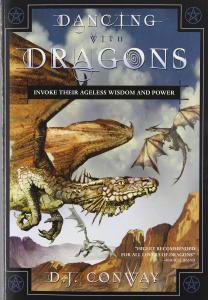 Sadly, no one had yet edited her Wikipedia entry to document her passing, until I took a look at it today in order to write this article, and took it upon myself. Sadly, for someone who was so important to so many, her Wikipedia entry is lacking in important details, like the date she was born, or any biographical information. And that I can’t do, because I was only acquainted through social media, and these details, I don’t know.
Sadly, no one had yet edited her Wikipedia entry to document her passing, until I took a look at it today in order to write this article, and took it upon myself. Sadly, for someone who was so important to so many, her Wikipedia entry is lacking in important details, like the date she was born, or any biographical information. And that I can’t do, because I was only acquainted through social media, and these details, I don’t know.
I think it would be better if people were better treated while they still breathed, rather than remembered so “fondly” after they are gone. And I think, especially when considering the effects of online discourse, where so much of our community interactions take place, we should all take a lesson and consider this.
Rest in peace, and hail to Old D.J. Conway, without whom I may not have been a Pagan today.
Footnote: I do not know Manny Tejeda-Moreno at all, who wrote the article at The Wild Hunt that I referenced, and my critique is not leveled at him.
Support my Kickstarter! This anthology includes several Pagan-related stories, including one by Diana Paxson!










